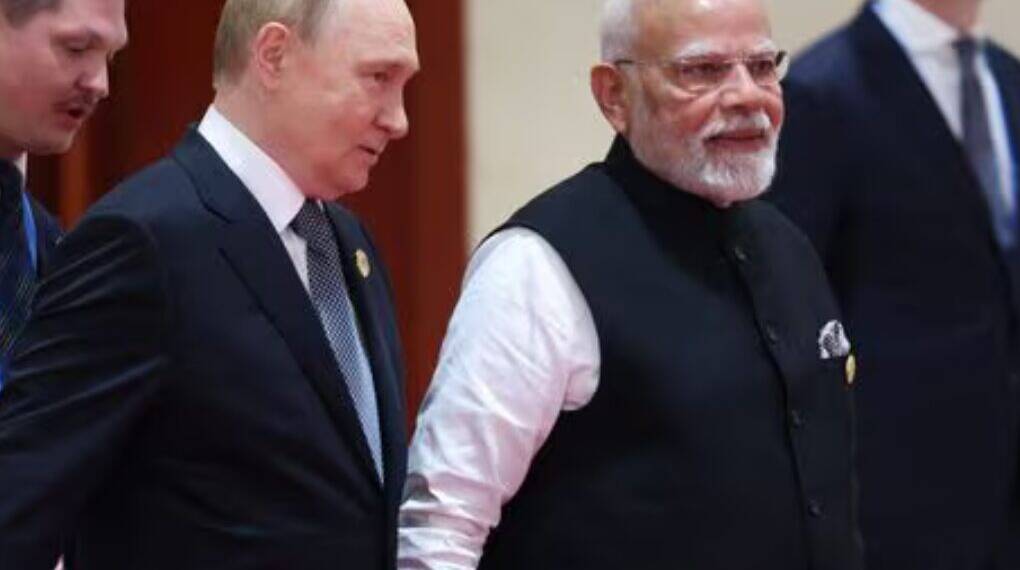Russian President Vladimir Putin will visit India on December 5, with the trip expected to deliver major outcomes in defence, energy, and financial cooperation at a time when Western pressure on New Delhi—especially from the United States—has sharply intensified over its continued imports of discounted Russian oil.
The visit coincides with the Russia–India Forum 2025, scheduled for December 4–5 in New Delhi, and marks Putin’s first trip to India since December 2021, just months before the Ukraine conflict reshaped global geopolitics.
Russia’s state agencies, including TASS and Roscongress, confirmed that Moscow is “actively preparing” for the high-stakes visit, describing it as “meaningful and strategically important.”
Defence Headlines: Russia to Offer Su-57 Fighters With Technology Transfer
One of the most anticipated agenda items is Russia’s proposal to offer India the Su-57 fifth-generation stealth fighter along with a significant degree of technology transfer and potential joint production.
The offer aligns with India’s long-standing interest in acquiring 5th-generation fighter capabilities and comes after previous discussions on a joint development programme stalled in 2018.
Expected defence discussions include: Finalisation of Su-57 procurement modalities, Review of S-400 delivery timelines, Talks on possible cooperation on the S-500 air defence system, Joint shipbuilding projects, including ice-class vessels, Maritime collaboration in the Arctic and Indian Ocean regions
Despite India diversifying its defence imports, Russia continues to account for a major share of India’s military inventory—making defence a key pillar of the visit.
Energy Diplomacy at Center Stage as U.S. Pressures India to Cut Russian Oil
Putin’s visit comes at a delicate moment. U.S. President Donald Trump has repeatedly pressured India to scale back Russian oil purchases and boost imports of American crude instead.
Trump recently claimed India “has already reduced” Russian oil intake and suggested that a new trade deal with India would include energy clauses favourable to the United States.
But Moscow is preparing to counter this by offering India: Long-term guaranteed crude supplies at discounted prices, Investment partnerships in Indian refinery expansions, Access to Arctic energy projects, Increased shipments through sanctions-resilient routes
India, which has saved billions by buying discounted Russian crude since 2022, is unlikely to drastically alter its energy calculus.
Bilateral Payment System to Bypass Sanctions
India and Russia are expected to unveil a new payment mechanism designed to overcome sanctions that have disrupted billions of dollars’ worth of oil and defence transactions.
Options under discussion include: A refined rupee–ruble settlement framework, Use of friendly third-country banks, A digital cross-border payment platform, Currency pooling with the Eurasian Economic Union (EAEU)
Resolving the payment bottleneck is crucial to achieving the $100 billion bilateral trade target by 2030.
Nuclear Energy, Shipping & Arctic Cooperation
Significant progress is expected in civil nuclear cooperation, particularly with more reactors proposed at the Kudankulam Nuclear Power Plant.
Other areas likely to see agreements include Maritime connectivity, Port upgrades and shipbuilding, Joint Arctic operations, Space technology collaboration, Agricultural and diamond trade mechanisms
New Delhi and Moscow have also been discussing “green shipbuilding,” ice-class vessels, and expanded cooperation on the Northern Sea Route.
India–Russia Labour Mobility Pact in Final Stages
A major highlight of the summit is expected to be a bilateral mobility and migration pact that will open the door for thousands of skilled Indian workers to legally work in Russia—where industries are experiencing post-war labour shortages.
Russia is seeking Indian expertise in: Construction, Electronics, Engineering, IT and cybersecurity and Energy infrastructure
The agreement will create a regulated framework ensuring worker rights, safety, and legal protections—an area New Delhi has been increasingly prioritising.
Strategic Balancing: India Navigates Moscow–Washington Rivalry
Putin’s visit underscores India’s commitment to strategic autonomy, as New Delhi continues to balance relations with Washington and Moscow.
Western sanctions and Trump-era tariff threats have only strengthened India’s determination to maintain its decades-old partnership with Russia.
Moscow continues to back India’s quest for a permanent seat on the UN Security Council and coordinates with New Delhi in BRICS, SCO, and the G20.
The leaders are expected to discuss global flashpoints including Ukraine, West Asia, and Asian security architecture.
A High-Stakes Visit With Global Implications
Putin’s December 5 visit will serve as a defining moment in India–Russia ties, with major decisions on fighter jets, energy flows, financial systems, and strategic coordination on the table. The outcomes will shape the partnership for the rest of the decade—and signal how India intends to navigate mounting U.S. pressure while preserving its independent foreign policy path.








